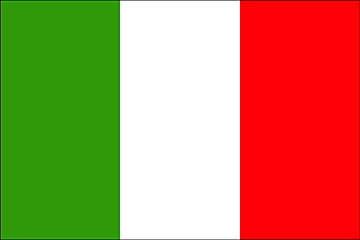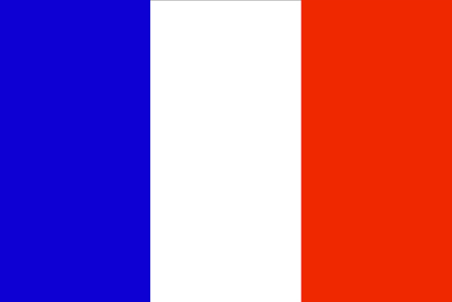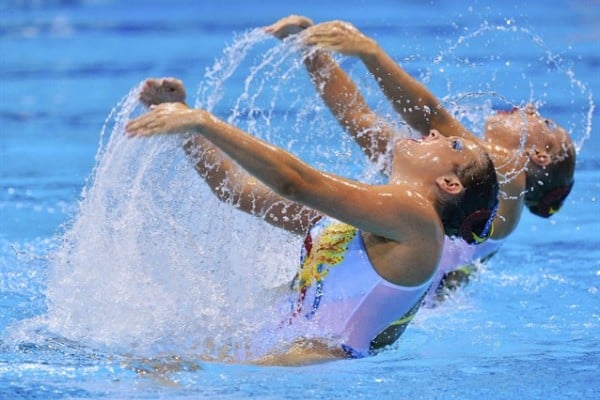When one team is a lot better than another, there might be a
blowout: a one-sided, mostly uncontested victory by a large number of points; then of course how large the margin of victory must be before it is called a blowout depends on the individual sport and on individual attitudes to scores. Blowouts are usually fair, if nothing else. If the terms of the competition are even (same league, same number of players, same rules, no favoritism, etc), then even the most humiliating final score is fair by definition.
The more interesting question is:
are blowouts right? Does the winning team have some sort of "duty" to stop piling up the points after it becomes clear that they will win? We all agree that we should respect our opponents, but how exactly is that respect expressed in sporting competition?
I want to discuss this issue from a standpoint of virtue, which is always helpful in sports ethics. In my view,
there's no one correct answer to the question of whether blowouts are right. One's answer depends on how one weighs the conflicting virtues that we all agree are worth pursuing, such as fairness, respect, and honor.
Personally, I tend to be tolerant of blowouts, because for me "respect" in sports means to play by the same rules, to maintain one's initial commitment to competitiveness, and to acknowledge the opponent's desire for self-determination. Thus, for me, preserving the virtue of respect justifies the "humiliation" of a typical blowout.
I should remark, however, that this view of respect is limited to sports, which are by their nature competitive.
Games can be recreational, and it is well for recreation to be noncompetitive. But sporting competition is not about having fun, participating, or expecting outcomes that don't hurt too much. In my view,
sports are exclusively about the committed confrontation of measurable skills, and as such command a view of respect based on self-determination and fair rules.
Blowouts

In 2011, Christian Heritage Academy
defeated West Ridge Academy 108-3 in a regional girls' basketball game. The incident spurred some interesting commentary (see
here and
here, for example), which correctly identified some of the ethical issues that are interesting to me. As I recall, reactions on social media were far more polarized, some lamenting the incident as abominable and others shrugging it off as normal.
Both reactions are compatible with the same ethical principle of sportship:
you should respect and not humiliate your opponent. The disagreement is only about
which action is humiliating or respectful. What's more in line with the desired virtue? Do we care more that the final score adequately reflect skill or do we care more that one of the teams doesn't feel ganged-up on by a large margin of victory? And what exactly is this "respect"? Is it something like showing manners to your elders and being nice to everyone? Does it entail a deeper and more significant view of the personhood and free agency of others? How do we tell?
We can start with the facts. For one,
losing teams rarely cry foul. In the basketball case, West Ridge said they didn't resent the score and this was no incident: they were beaten fair and square, period. Likewise, in a 2002 World Cup qualifier game, the American Samoa national team
expressed no resentment after losing 36-0 to Australia (that's a very big loss in association football/soccer, perhaps the equivalent of 300-0 in gridiron football).
In both cases, the reasons adduced by the losers are the same:
they don't want the other team to go easy on them. It would be more humiliating to lose by 20 points because the other team wasn't trying or because of a
mercy rule than to lose big but fairly. Thus, of the two options above, many losing teams seem to prefer that the final score reflect talent. After all, a minimum requirement of participating in sports is to accept a priori the possibility of a (big) loss, so most teams enter the competition with a mindset like "whatever happens will be fair."
As for the winners, there's no doubt that
many winning teams do hold back, consciously or otherwise, and that most blowouts could be a lot worse. Take, for example, Spain's 10-0
smackdown of Tahiti in the Confederations Cup today, which spurred me to write this piece. While it may seem cruel, especially as the Tahitian team is made of amateurs, Spain played
none of its usual starters, ran slowly for most of the game, and failed to score in seemingly absurd ways. By all standards they held back, and if they hadn't the scoreline would have been more like 25-0, which would have been a more fair reflection of talent.
(Obviously,
some blowouts also happen between teams whose matches do not usually produce blowouts. A famous case that comes to mind is Manchester United's shocking 7-1 defeat of AS Roma in the 2006-7 Champions League quarterfinal, after Roma had won their home leg 2-1. But of course these are accidents due to "one bad night" for an otherwise good team, and thus aren't the kinds of blowouts that I'm discussing).
Virtues
So much for what teams usually do. What should they do? The Aristotelian virtue-based ethical system is very useful in sports ethics, where morally interesting cases are often insufficiently clear-cut to warrant consequentialist or deontological analyses; much fine-tuning is needed, and there must be room for individual psychology, intuition, and emotion, and virtue ethics alone can accommodate for those.
We have already identified the key virtue, that of
respect for the opponent, which is incontrovertibly the goal of all involved; I suppose that for some the only goal is victory, and to hell with fairness and respect, but as those aren't subscribing to the principles of fair and honest competition in the first place I feel confident in discarding their opinion.
Respect for the opponent can take many shapes. One is some version of the
golden rule: treat them as you want to be treated; treat them as equals; treat them as if seeing yourself in them; etc. This is probably true of all, but it is trivially true, and doesn't speak to what we're really interested in finding out: *how* one should be treated, how one should *want* to be treated, etc.
Another way to express respect is to
withhold judgment about an opponent's talent, to consider his or her worth as unproven until actually proven by competitive means. Defenders of this reasoning could say something like this: "the only way to find out their abilities is to play them to the best of
our abilities; therefore, we won't try to judge them by means other than the fair means of competition, lest we come across as being prejudiced." This attitude is akin to trusting the verdict of the field more than one's own, or to let things go as they will, or to "let nature take its course" if we will.
The main appeal of this way is that "respect for the opponents" is really
respect for their self-determination and autonomy. This is a Kantian concept to which I am especially partial. It would be very disrespectful for me to treat you according to
my opinion of your worth, so I will give you the most respect by letting you to prove your own worth freely, even if that should result in a big loss. In other words, the claim "I respect you" is false unless it includes the claim "I respect your right and desire to be a free agent making free decisions," which includes the free decision to commit to the principles of fair competitiveness required for participation in sports. Otherwise, it's meaningless for us to even compete at all.
Yet other ways to respect opponents are to
minimize their suffering while remaining true to the spirit of the game; or to act in such a way as is
most likely to maintain a healthy relationships in the foreseeable future, both with your present opponents and with other teams. While probably less conducive to blowouts than the previous two accounts, these needn't be in open conflict with those. It is possible to respect one's opponents in the self-determination way discussed above while
at the same time ensuring the maintenance of a relationship healthy enough for future encounters; this is especially important between teams or players who compete in the same league year after year, where blowouts can give rise to bitter rivalries and escalating tensions.
To sum up, as far as respect for opponents is concerned,
what one should do depends largely on one's preferred account of respect, among those discussed above and others.
Another crucial virtue is
respect for the game, which is different from respect toward the opponent. Some feel that to hold back means to offend the good name of the sport itself. This is a metaphor, as "the sport" is not a person and cannot be offended. But sport exerts great sociopolitical influence on people and peoples, giving birth to rites, traditions, habits, allegiances, and ideas -- and
those are held and propagated by people, who, as their bearers, can be offended if they are violated. In more general terms, all agents have a prima facie duty to play by the rules of their activity; and, following de Coubertin,
one of the chief rules of sports is that players will try their best and strive to win (which, of course, is not at all incompatible with accepting defeat graciously!). Thus, insofar as one isn't trying one's best, one isn't playing by the rules. This also connects to the previous points about respecting opponents, who arguably
are trying their best: in this sense, to hold back means to play with a different set of rules.
A third key virtue at stake is that of
honor, which applies to both sides. On the one hand, the losing team may feel as if their good name has been tarnished after a blowout, that "it doesn't end there" and the memory of the defeat will continue to do lasting damage. This is especially relevant when the team is affiliated with an important social institution like a school or township, as it often is. On the other hand, some may find it even more dishonorable to have been judged as unworthy instead of being let free to prove themselves. The honor of the winners is called into question too, as it may be dishonorable to either run up the score (which is like bullying a weaker kid at school) or to hold back intentionally (which runs contrary to the spirit of doing one's best). Again, the important of the virtue of honor depends on how much weight is given to it. If much weight, to do anything but one's best dishonors the opponent, oneself, and the principle of fair competition, and thus the sport as a whole. If not a lot of weight, discussion of blowouts probably best rests with respect.
So far, much of my discussion of the relevant virtues seems to suggest that there is little wrong and much right in running up the score.
Yet a very strong intuition remains that "it is just not nice" to win big. Even though I am generally okay with blowouts, sometimes this feeling has a lot of intuitive purchase with me, and I know that some people base their entire judgment on it The idea is that regardless of all other considerations, it's just impolite, vicious, inconsiderate, or rude to treat your opponents like that.
This sort of reasoning can be motivated in several ways. The obvious one is that
if the goal of the game is to win, then once you know you will win you should stop playing. This means to give very little weight to competitive fairness, which matters less than friendship and a certain qualitative assessment of consequences ("it feels bad to lose like this, so we should avoid to make others feel bad in that way"). Sometimes this sort of argument is tempered with suggestions that the instead of not trying, the winning team should replace their starters, play with fewer players, try their hardest play calls to decrease their probability of scoring, or even actively encourage or assist their opponents.
A similar argument is that inflicting blowouts, as well as accepting them as fair and square, reflects
a vicious attitude of machismo according to which it is better to go down fighting than to be helped; better to die standing than to live on your knees; and a whole slew of similar traditionally masculine and warmongering slogans. This is undoubtedly connected to the virtue of honor, but only a particular take of it, on which the honorable thing to do is fight at all costs and until the very end.
Notice that these aren't really arguments in favor of holding back, but rather in favor of changing the rules of the game themselves. People who sympathize with this position are thinking outside the "sports box" and are focusing first of all on the players
as people, not as players. If the discussion of virtues in the previous sections all but mandates big blowouts in order to keep with the spirit of the sport, then
it's the spirit of the sport that's wrong.
One can be committed to this attitude in varying degrees. One may say that games should be able to be suspended when one team is obviously superior, either by mutual agreement or by some kind of
mercy rule. For example, a game will end whenever there is a 10-goal difference, or a 50-point difference, etc. More strongly,
one may even reject the entire competitive framework and claim that sport just has no reason to be, not if one of its possible consequences is the humiliation of its participants. In concordance with the critique of machismo, the idea here is that sports merely exacerbate human competitiveness and channel it into a
violence-producing, privilege-reinforcing, diversity-shaming activity. While I reject most such statements as baseless and false, as I briefly discuss in the conclusion, they are not at all absurd or insane.
Institutional efforts
The picture that is emerging is that
one's attitude to blowouts depends on moral commitments that are mostly unrelated to sports. It depends chiefly on one's view of mutual respect, of competition, and of how to weigh conflicting virtues. If so, there isn't much left that's objective in evaluating this issue. One element on which the sides can converge is that
sports' organizing bodies should attempt to reduce the possibility of blowouts in the first place.
This issue is intuitively appealing:
if a confrontation ends in a blowout, was it ever fair to begin with? So far I have been assuming that if two teams or players are playing each other in some sort of official game or match, then there is a basic competitive fairness that's in place and that's been accepted by both as a prerequisite of participation. Sometimes, however, that is not the case. Following the American Samoa debacle in 2002, FIFA was convinced to introduce more preliminary rounds in the World Cup qualifiers so that teams wouldn't be forced to play those games. That basically amounts to an admission that games like Australia-American Samoa were simply not fair at all and should not have been played.
Most sports already have systems in place to avoid potential unfairness. Most FIFA tournaments include several "preliminary rounds" where the weaker teams play one another before the "cream of the crop" advances to face the better teams. In the US, the NFL ensures that weaker teams are strengthened by picking first in the Draft, which avoids polarization and the endurance of dynasties. Even individual sports, like swimming and athletics, pool together athletes based on their
demonstrated results, such as personal or season bests. These are all pragmatic ways to ensure that competition is both fair and interesting.
Of course,
there are also counterproductive efforts in this sense. For example, FIFA, ATP, and WTA all distinguish between "seeded" and "unseeded" teams or players in their draws, making sure that better competitors are "rewarded" by playing at least some weaker opponents at some point. This system also provides incentives to perform well.
In general, though, the world's sport governing bodies do a decent job of eliminating the possibility of blowouts, which do remain a relative rarity. In part this is to avoid the moral qualms that I have been discussing, and thus their fallout; and in part it's out of pure self-interest, because one major consequence of running up the score is that
blowouts ain't fun to watch. When choosing between a well-contested game and a one-sided game, almost every viewer will choose the former. Many American networks even suspend broadcast of certain blowouts to "take you to a more competitive game" that's taking place somewhere else. Granted, that people don't want to see them is a piss-poor reason why blowouts are bad, but it does give governing institutions a strong reason to avoid them.
Conclusion
Personally, I don't feel very bad for the team on the losing side of a blowout. Part of this is because I do not believe that attitudes like "it is more important (for all involved) to have fun than (for anyone) to win" have any place in organized sporting events. Kids kicking a ball at the playground after school probably
are doing it just for fun, but amateur and professional sports are neither about having fun nor about winning: they are competitions with the goal of measuring skills while producing entertainment. That is,
my view of sports is inextricably tied to the concept of competition, to the point that one cannot exist without the other. "Playing football" noncompetitively is not sports: it is kicking a ball, an activity that vaguely resembles another activity that football players also do. That's mighty fine, and it is probably the most appropriate way to play for children and some amateurs, but it is not sports. So if we want to say that a certain game is a sporting event, it must be competitive; and if it is, then the above observations about virtue apply, and in my opinion justify the occasional blowout.
Another reason why I feel this way is that
I have been on both sides of a blowout as a soccer player when I was younger, and it was always very educational.
As a winner, it was awkward to keep scoring and frustrate our opponents, but we were also motivated by their efforts to give it their all and try their best. We once far outscored a group of younger kids who could barely even shoot on goal, but they didn't give up and so neither did we. It was seeing their effort that spurred us to continue playing at our level, if with the caveats discussed in the first section. So as far as virtues are concerned, in the heat of the moment I remember a strong pull toward "respect for the opponent," motivated in something like "respect for self-determination." Going easy on them wouldn't have been merely disrespectful, but dishonest too.
To hold back is to cheat.
As a loser, it was indeed humiliating to lose big. Sometimes, anger and shame are excellent motivators to do better, in sports as in life. Some other times, you feel the negative and unproductive humiliation from which nothing good can come, and you just want it to stop. However, and again in my own experience,
the losing team's reaction to a big blowout depends a lot on their opponents' attitude, not on the score. Are they beating you out of mutual respect or are they putting you down and deriding you? If the former, it is
rare to feel negatively about a blowout. If the latter, then even if they're more talented than you they are your moral inferiors and you stand on a moral high ground. There is a very big difference between feeling ashamed and being shamed: the former is quite alright, but not the latter. So, in my opinion,
losing big in sports may be shameful, but the team who beats you is not necessarily shaming you. And if the account of respect based on self-determination that I've been defending is convincing, then you are being shamed when you are
not being soundly beaten by a much better team.
Again, my view is far from absolute. It only applies to cases where competitors choose to participate in an event that's based on fair competition, and only when those choices are free and autonomous. When any one of those elements is lacking, I struggle to even call that event a sporting event in the first place; it is, at most, a physical recreational activity that resembles a sport. In those cases, probably blowouts aren't as acceptable, since either autonomy or competitiveness are lacking -- but other than young children at a playground, those cases aren't very common or very interesting. As concerns amateur and professional organized sports, the occasional blowout is not to be feared or decried, but rather taken as an inspiration to remind oneself of the nature of competitive sports.
.
.













.JPG)


































